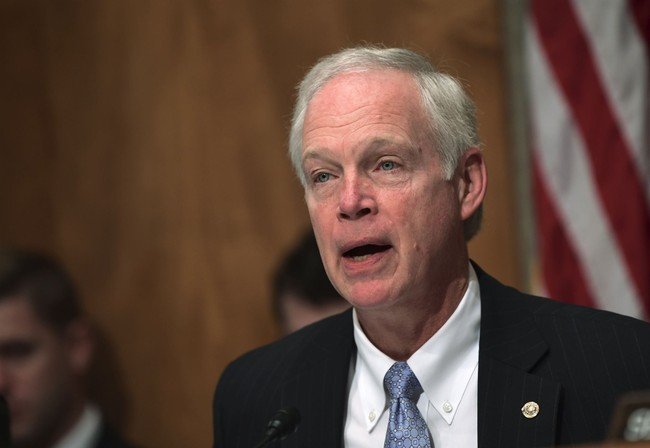Pennsylvania U.S. Sen. Bob Casey was scheduled to attend a fundraiser in Pittsburgh last Friday. Instead, the Scranton Democrat joined his Lehigh Valley colleague, U.S. Senate Republican Pat Toomey, at a somber memorial service for Christopher David Hill, a deputy U.S. marshal who was killed in the line of duty.
Hill was an Army veteran and an 11-year veteran of the U.S. Marshals Service. While serving an arrest warrant for Shayla Lynette Towles Pierce, wanted by Harrisburg police for felony terrorist threats, Kevin Sturgis, 31, of Philadelphia, opened fire on officers from the second floor of Pierce’s home.
During last week’s brief but politically charged government shutdown, Casey was passionate in his opposition to Republicans, vowing not to “bow down” to their demands. But he never once attacked Toomey personally.
For his part, Toomey has never attacked Casey personally, even though the Scranton Democrat is up for re-election this year and is potentially vulnerable to attacks from Republican Rep. Lou Barletta.
In fact, when Toomey was locked in a tight race against Democrat Katie McGinty in 2016, it was challenging to find even a single instance where Casey sharply criticized Toomey while campaigning for McGinty or Hillary Clinton.
This is a noteworthy relationship.
Casey and Toomey are one of 12 pairs of U.S. senators who represent the same state but are from opposite parties. Most have adopted a policy of not incendiary against each other, even in election-year cycles.
The opposing party pairings include Ohio Republican Senator Rob Portman and Democratic Senator Sherrod Brown, Colorado Republican Senator Cory Gardner and Democratic Senator Michael Bennet, Florida Republican Senator Marco Rubio and Democratic Senator Bill Nelson, West Virginia Republican Senator Shelley Moore Capito and Democratic Senator Joe Manchin, and Wisconsin Republican Senator Ron Johnson and Democratic Senator Tammy Baldwin.
While all 12 groups are mutually exclusive when it comes to large-scale voting, typically splitting votes along party lines, they all work well together when nominating and confirming candidates to federal district courts, and in this, Casey and Toomey are champions, regardless of which person is in the minority at any given time.
Of these, the only pair not holding their fire are Johnson and Baldwin from Wisconsin.
Case in point, last week during the government shutdown, Johnson not only fired off a statement saying, “Unfortunately, Senator Baldwin and 43 of her colleagues have chosen to play politics with people’s lives by defunding healthcare for vulnerable children, supporting our best serving military members, and the rest of our government,” but he also attacked her several times on his official Senate Twitter account.
And don’t think the favor goes unfulfilled. Baldwin consistently returns fire.
Baldwin and Casey are two of several incumbent Democratic senators running for re-election this year in states that Trump voted for the party in 2016, including West Virginia, Ohio, Pennsylvania and Montana.
So far, Baldwin is the only one who has personally endured criticism from his colleague. The question is why? The other pairs almost always cancel each other out on party votes, but they always find a way to work together on noncontentious issues, such as federal regulation, securing funding for major military and federal installations in their state, and sometimes hosting joint breakfasts for larger groups visiting Washington.
So what makes Johnson and Baldwin’s relationship so breakable? Will it facilitate in an election year? If so, who will it facilitate?
Part of their disconnect is that Baldwin is from Madison, a very political city, and has been involved in politics since law school. Johnson was a very successful businessman before he ran for office. He’s not from Madison, and if you know anything about Wisconsin, that says it all.
Plus, she’s far left, he’s far right. She won the Wisconsin Senate by 4 percentage points in 2012, beating former Gov. Tommy Thompson in a nasty, pricey race.
Wisconsin is a changing political state, and Baldwin is one of two state Democrats currently serving in office. Republicans control the state House of Representatives, the state Senate, a majority of the congressional delegation and every swing seat in Congress.
Despite her leftist views, Baldwin has faced withering criticism from MoveOn.org, which criticized her for voting last Monday to reopen the federal government without including any deal to protect “Dreamers,” adolescent immigrants who would have received protections under the never-passed DREAM Act.
And Johnson has taken the lead in keeping Wisconsin Republicans united ahead of the August Republican primary between businessman Kevin Nicholson and state Sen. Leah Vukmir. Johnson has urged both candidates to sign a declaration of unity.
Despite entering the second year of his second term, Johnson has always done things outside the norms of political procedure because he has never shaken off his outsider persona. He is still that businessman who accidentally became a U.S. senator.
It’s one of those Senate races that has been largely ignored by the national press, but Wisconsin Republicans shouldn’t be underestimated. They’ve fought and won races they technically shouldn’t have won over the past eight years. Both Johnson and GOP Gov. Scott Walker, who is seeking a third term, have built massive grassroots operations ahead of Walker’s race and whoever Baldwin’s eventual challenger will be.
Expect Johnson to have a lot to say ahead of this race — something you probably won’t see from his fellow Republicans in Montana, West Virginia and Ohio. But that’s par for the course for Johnson, who has always worked outside the system — and usually won.


